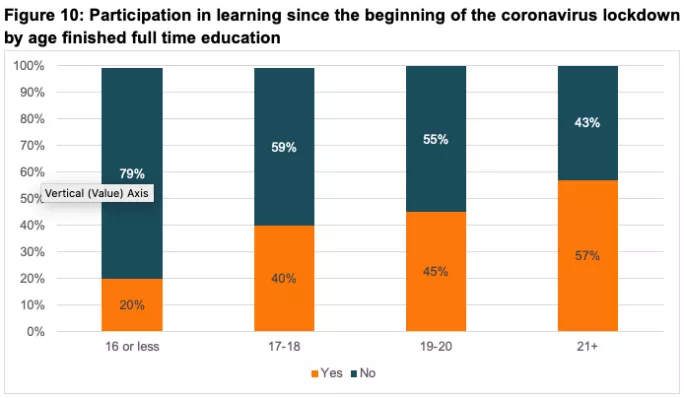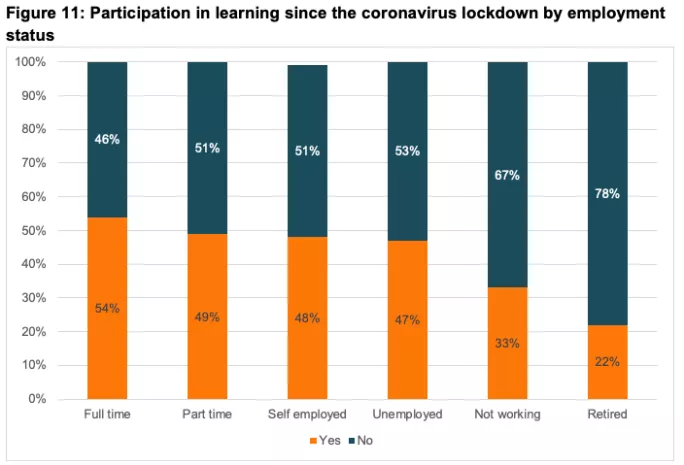Those adults most likely to benefit from lockdown learning were least likely to take part in it, new research has revealed.
The Adult Participation in Learning Survey, conducted annually by the Learning and Work Institute and published this morning, found that while 22 million people across the UK – the equivalent to two in five adults – took part in a form of lockdown learning, those who were most likely to benefit were the least likely to participate.
The survey found that one in five (20 per cent) of adults who left school at the first opportunity took part in lockdown learning, compared to three in five (57 per cent) adults who stayed in education until the age of 21. Adults in lower socioeconomic groups (29 per cent) were half as likely to take part in lockdown learning compared with adults in higher socioeconomic groups (57 per cent).
The research also found that one in three adults (34 per cent) who were out of work took part in lockdown learning, compared with over half (52 per cent) of those who were in employment.
Need to know: 'College of the future' report revealed
More: Why we’re celebrating the first Lifelong Learning Week
Investigation: Evening class uptake down 50% in 10 years
'Stark and long-standing inequalities'
Fiona Aldridge, director of policy and research at the Learning and Work Institute, called on the government to close the “stark and long-standing inequalities in access to learning”.
She said: “We will see more jobs created as the economy recovers, but we will need to ensure people have the opportunity to develop the skills they need to access the work that is available.
“So it is good to see that two in five adults took part in some form of lockdown learning. However, it is a real cause for concern that the very people who are most likely to need to upskill and retrain, are the least likely to be accessing learning opportunities.
“We urgently need to close these stark and long-standing inequalities in access to learning, so that nobody is left behind in the post-covid economy.”
The research also looked at adult participation in learning over the last three years. The survey found that 44 per cent of adults in lower socioeconomic groups had taken part in any form of learning in the last three years, compared with 74 per cent of those in the highest socioeconomic groups.
The report also revealed that adults who left education aged 16 or younger were less than half as likely to have accessed any form of learning in the last three years, compared with those who stayed in education until at least the age of 21.






